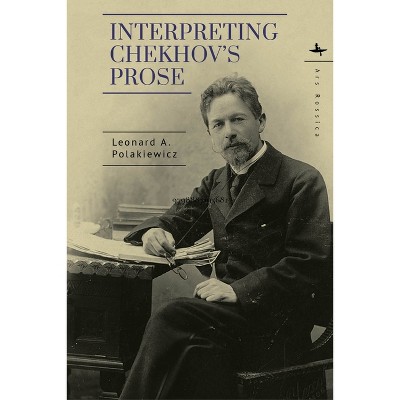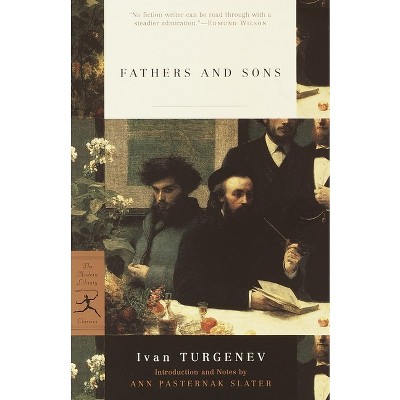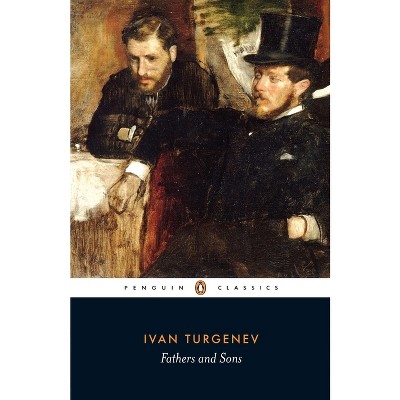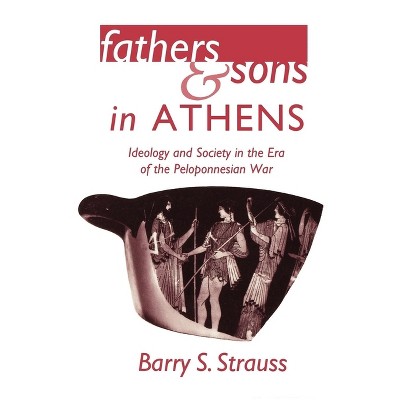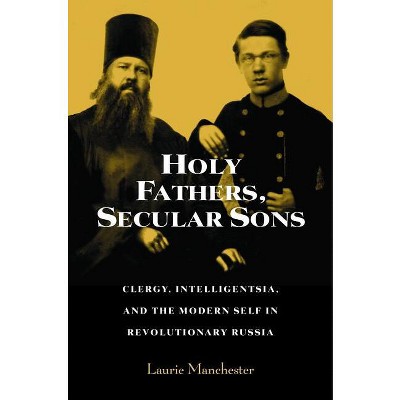About this item
Highlights
- This book traces an explosive and dynamic pattern-generational interaction and conflict--in the last two centuries of Russian history.
- About the Author: Vladimir Golstein is a Professor of Slavic Studies at Brown University.
- 370 Pages
- Political Science, World
- Series Name: Ars Rossica
Description
About the Book
This book traces an explosive and dynamic pattern--generational interaction and conflict--in the last two centuries of Russian history. Reform, revolutions, terrorism and dictatorship, and their cultural artifacts they produced (E.g. Pushkin's poems, Dostoevsky's novels, and Eisenstein's films) are explored through this timeless prism.Book Synopsis
This book traces an explosive and dynamic pattern-generational interaction and conflict--in the last two centuries of Russian history. Reform, revolutions, terrorism and dictatorship, and their cultural artifacts they produced (E.g. Pushkin's poems, Dostoevsky's novels, and Eisenstein's films) are explored through this timeless prism.Review Quotes
"The temporal sweep of Golstein's study is truly impressive. Through the lens of generational struggle Golstein illuminates not only individual works, but the broader movements of Russian and Soviet cultural life. Fathers and sons: Turgenev's Theme in Russian Literary and Political Culture deftly transitions from incisive close readings to a bird's-eye view on centuries of cultural transformation."
-Tatyana Gershkovich, Associate Professor of Russian Studies, Carnegie Mellon University
"In his wide-ranging study Vladimir Golstein brings into crystalline focus the role that generational conflict played in the Russian cultural consciousness of the 19th and 20th centuries. While most readers will know of the theme's importance in works like Turgenev's Fathers and Sons and Dostoevsky's The Brothers Karamazov, Golstein shows these were just the tip of a vast iceberg. Using as his framework the Ur-myths of the son-devouring Cronus and the prodigal son, he offers detailed readings of the theme's presence in works by a wide range of writers, from Pushkin, Turgenev, and Dostoevsky in the nineteenth century to Bely, Mayakovsky, and others in the twentieth, as well as films like Sergei Eistenstein's Alexander Nevsky and Ivan the Terrible. As Golstein skillfully shows, far from being an incidental theme, the idea of generational conflict repeatedly served Russian writers as a lightning rod for key political tensions of their era."
--Thomas Seifrid, University of Southern California
"Vladimir Golstein offers a magisterial analysis of fathers (rulers) and sons (subjects) in Russian literature, cinema, and politics over the span of two centuries. Is it any wonder that artists and officials in an era of such rapid, wrenching, pervasive change would turn again and again to the clout and culpability of generations? And so the metaphor of intergenerational conflict illuminates a long series of Russia's most significant historical touchpoints (Westernization, Decembrism, Revolution, RAPP, Socialist Realism, Chapaevism, Stalinism) and influential practitioners of literature and film (Pushkin, Lermontov, Turgenev, Chernyshevsky, Dostoevsky, Bely, Mayakovsky, Parnok, Bulgakov, Eisenstein, the Vasilyevs). While there is no denying "the danger of a single story," scholars and students who crave a unified explanation of Russian culture since 1800 will find much to admire in Golstein's persuasively contextualized parent/child dialectic."
--Thomas Hodge, author of Hunting Nature: Ivan Turgenev and the Organic World
About the Author
Vladimir Golstein is a Professor of Slavic Studies at Brown University. He is the author of Lermontov's Narratives of Heroism, Svetlana Aleksievich--the Voice of Soviet Intelligentsia, and numerous essays on major Russian artists ranging from Pushkin to Tolstoy, and from Tsvetaeva to Tarkovsky. In 2016, he co-edited with Svetlana Evdokimova, Dostoevsky Beyond Dostoevsky: Science, Religion, Philosophy (Academic Studies Press).






